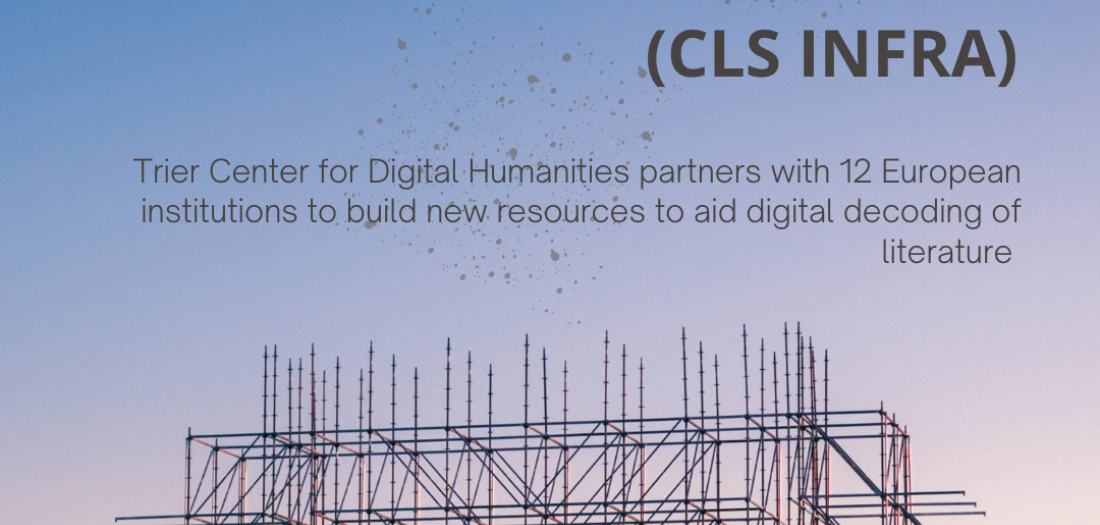Computational Methods to Unlock Literary Secrets
Developing European Research Infrastructures in the Field of Literary Studies
16.04.2021 | Press Releases, Project News

The Trier Center for Digital Humanities (TCDH) at Trier University joined forces with 12 other institutions across Europe for a research project that aims at the support of new approaches to the study of literature in the digital age. Computational Literary Studies Infrastructure (CLS INFRA) is a four-year partnership to build a shared resource of high-quality data, tools and knowledge needed for literary studies using artificial intelligence and other computational methods.The project is being supported with €5 million funding from the European Commission. The team around Prof. Christof Schöch at the TCDH includes Julia Dudar and Evgenia Fileva. Heading the project work, they aim at documenting and disseminating current methods and experiences of literary scholars working digitally, and at testing innovative methods at the periphery of current practices. In this way, they will foster the development of the Computational Literary Studies community towards a shared, open and durable infrastructure that promotes and disseminates innovative research. Christof Schöch states: “The use of digital corpora and computational methods provides us with an unprecedented opportunity to share, compare and understand the European literary tradition across national borders and linguistic boundaries. We’re excited to be part of this endeavor!” The overall aim of CLS INFRA is to open up the best data mining resources Europe has to offer in the growing field of Computational Literary Studies, which enables a big-data approach to the study of culture. For instance, it can help scholars to detect patterns which show what literary genres were prevalent at certain times; if and how gender manifests in the language of writers; whether the movement of literary style can be mapped across time and space. The CLS INFRA project will identify and map the specific requirements of researchers who wish to study literature using technology and AI. Partners in the 13 institutions will bring together existing resources as well as develop new tools, services and literary collections. A further aim of the project is to open up Computational Literary Studies to more researchers and enable investigation into Europe’s multi-lingual and interconnected literary heritage and cultural diversity. Support services and training will be provided to researchers who are new to the use of computers and AI for literary study. Scholars from under-represented regions and languages, as well as independent and citizen scholars, will also be supported. Dr. Maciej Eder, Director of the Institute of Polish Language at the Polish Academy of Sciences and Principal Investigator of CLS INFRA, said: “This is a very exciting project which promises to make great advances in how we use computers to study literature. One of the great challenges to Computational Literary Studies is that the landscape of digital literary sources is very fragmented, as scholars and readers struggle to find texts that are made accessible and reusable in standardized ways. CLS INFRA will address this deficit in a way that will allow the field to flourish.”
Please direct media queries to Henrike Sievers at the TCDH.
Full list of institutions taking part in the CLS INFRA project: Institute of Polish Language at the Polish Academy of Sciences, Poland; University of Potsdam, Germany; Austrian Academy of Sciences, Austria; National University of Distance Education, Spain; École Normale Supérieure de Lyon, France; Humboldt University of Berlin, Germany; Charles University, Czech Republic; Digital Research Infrastructure for the Arts and Humanities, France; Ghent Centre for Digital Humanities, Ghent University, Belgium; Belgrade Centre for Digital Humanities, Serbia; Royal Netherlands Academy of Arts and Sciences, Netherlands; Trier Center for Digital Humanities, Trier University, Germany; Moore Institute, National University of Ireland Galway, Ireland
Link: zur Projektseite

